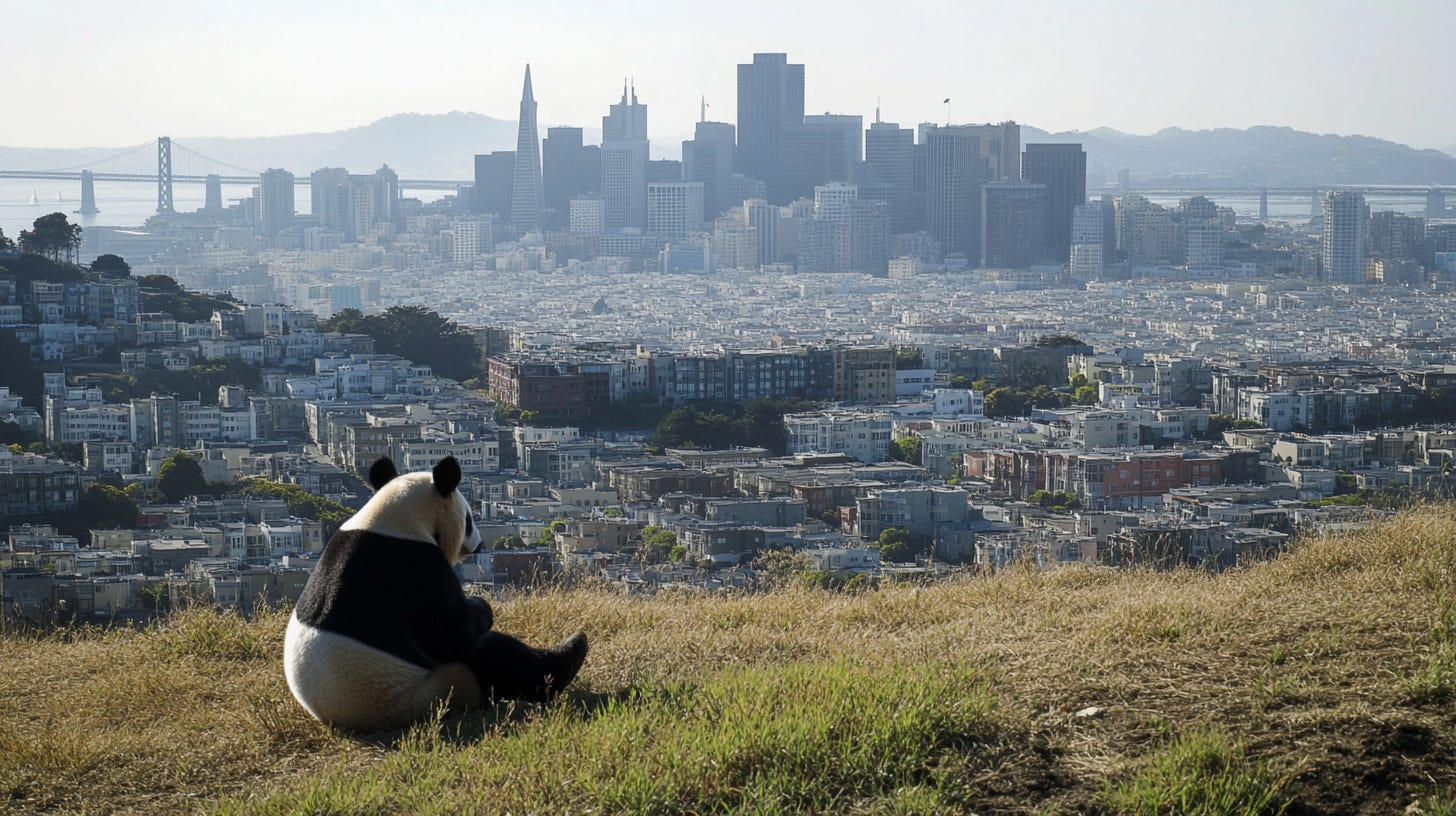San Francisco Zoo's Panda Funding Fiasco
$15 Million Meant for Low-Income Aid Rerouted to Fund Zoo's Panda Exhibit

In a twist that sounds more like political satire than reality, San Francisco is planning to spend millions on renting giant pandas from China, diverting funds meant for low-income community support. When Mayor London Breed announced her panda plan, she promised that no taxpayer money would be used for the project—a pledge that sounds responsible until you realize the alternative funding comes from money earmarked for organizations aiding low-income communities.
An internal report by the San Francisco Zoo, reported yesterday by the SF Chronicle, reveals plans to reroute $15 million from the San Francisco Community Investment Fund, intended to uplift the city's most vulnerable areas, toward constructing a new panda exhibit. Furthermore, an additional $10 million is slated to be sent to China under the guise of conservation, which a New York Times investigation found to fund infrastructure projects in China, including housing and roads—a curious allocation when our own city is in dire need of both.
The zoo's financial gymnastics include a projected $320 million revenue increase from the pandas over a decade, a figure that should be taken with a hefty grain of skepticism. Past experiences from other zoos show that the financial boom from pandas is often short-lived, not sustaining long-term benefits or justifying the initial outlay.
As Mayor-elect Daniel Lurie takes office, vowing to usher in an era of transparency and service, the panda project becomes a litmus test of his administration's integrity. Recent reports have underscored the potential for corruption within the zoo's panda project, revealing how these animals are used as diplomatic tools in international relations, subtly influencing local U.S. politics under the pretense of conservation.
This troubling trend was highlighted in a New York Times article, emphasizing the misuse of pandas to sway political outcomes. Such manipulation of conservation goals for political leverage raises serious concerns about the redirection of funds intended for low-income support. This not only could be viewed as a major oversight in city governance but also indicates a concerning vulnerability to external influence presented as cooperative efforts.
Mayor-elect Daniel Lurie should decisively reject the plan to bring giant pandas to San Francisco. As he steps into office, he has an opportunity to demonstrate leadership by realigning city resources toward urgent local needs rather than endorsing this bamboo-laden blunder.
Instead, this could be a pivotal moment to reimagine the zoo's future, focusing on enhancing local wildlife conservation efforts and educational programs that resonate more directly with community values and needs. This redirection will ensure that San Francisco's funds directly benefit its residents, showcasing Lurie’s commitment to practical and principled governance.



